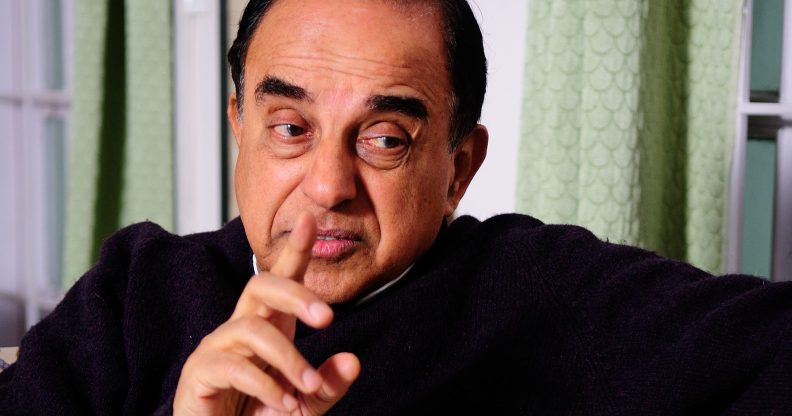Leader of India’s ruling party says homosexuality is a ‘genetic flaw like having six fingers’

Subramanian Swamy, leader of the BJP (Priyanka Parshar/Mint/Getty)
Subramanian Swamy, the leader of India’s ruling party BJP, has declared that homosexuality is “a genetic flaw like having six fingers”.
Swamy first made the comments in 2016 but retweeted them on Friday (June 26) as the country celebrated the historic repeal of Section 377, a regressive colonial-era law that criminalised homosexual sex.
The senior politician expressed regret over the landmark verdict, stating that while he agrees that LGBT+ people should not be discriminated against, he also believes homosexuality should not become accepted as “an alternative mode of behaviour”.
“I have always maintained that it’s a genetic flaw like having six fingers on your hand,” India’s Times Now News reported him saying.
“[Homosexuality is] not something that should put obstruction on your normal social being – but on the other hand having six fingers is not normal.”
Swamy went on to draw comparisons with bestiality, arguing that if the Supreme Court has ruled that homosexuality is not unnatural then sex with animals should also be legal.
“But they haven’t struck down the part which makes it a crime to have sex with animals – there they draw the line on individual rights,” he said. “They said what you do in your privacy and in consent is your business. We did not have a problem with that.”
He continued: “Sex is sex – it’s an emotion – you have it with animals. It’s okay to be born homosexual but then don’t flaunt it… you can’t make it an alternative to normal sexual behaviour.”
Homosexuality a genetic flaw like having six fingers: Subramanian Swamy https://t.co/ytV0HDPNTm
— Subramanian Swamy (@Swamy39) June 26, 2020
His confusing viewpoint drew significant criticism, although many others expressed agreement with him.
Gay sex became legal in India in September 2018, and the LGBT+ community in the country has blossomed the wake of the ruling. LGBT+ acceptance is growing, particularly in urban areas, but the country’s more traditional, rural areas have been slow to follow.

